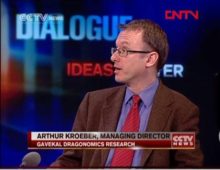 |
| Harry Broadman |
Analysts watched the 'announcement' of a first trade deal between China and the US with amazement. Former US trade negotiator Harry Broadman points out that typically you wait till you have something in writing, in both languages, to avoid hiccups before the signing, he explains to Reuters.
Reuters:
More in Reuters.
Harry Broadman is a speaker at the China Speakers Bureau. Do you need him at your meeting or conference? Do get in touch or fill in our speakers' request form.
Are you looking for more experts on the China-US trade war? Do check out this list.
It could be weeks before the 86-page agreement is translated into Chinese and further details are released. Several Chinese officials this week said the wording of the deal remained a delicate issue and care was needed to ensure expressions used in text did not re-escalate tensions, raising concerns it could still unravel.
Jorge Guajardo, a former Mexican ambassador to China who is now a senior director at McLarty Associates, said both the dust-up with the Mexicans over U.S. plans to monitor changes to Mexican labor rules, and the delayed release of the text of the China deal raised questions about how Lighthizer operated.
"Both Mexico and China seem to have been caught off guard," Guajardo said. "It's troubling. It does indicate a bit of a pattern on the U.S. side of presenting different agreements than their parties think they agreed to."
Harry Broadman, a former senior USTR official, said there was no reason the Mexico issue should have spilled into public view. Announcing the trade deal with China before the text was translated was also unusual, he said.
"That is not the procedure usually followed in trade negotiations worldwide. Usually you speak after you have something in writing, and both sides release it," Broadman said.
More in Reuters.
Harry Broadman is a speaker at the China Speakers Bureau. Do you need him at your meeting or conference? Do get in touch or fill in our speakers' request form.
Are you looking for more experts on the China-US trade war? Do check out this list.
